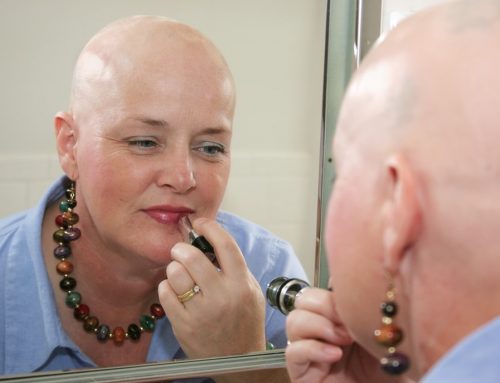You’ve seen the test results, discussed treatment options with your physician, and asked a million questions. Yet there is still something nagging at you. And by now you’ve had more advice from physicians, friends, and family than you can possibly process. Add to that all the research you’re doing, and that mountain of information just reached amazing heights. Yet that little doubt keeps telling you to get a second opinion. Listen to that inner voice!
Many reasons for getting a second opinion include discomfort or poor communication with your current physician, uncertainty about your physician’s choices, or simple nervousness and the need to be reassured. If you have a rare cancer or if your physician is not a breast cancer specialist, your physician might even recommend a second opinion.
Remember, your health is not a minor detail in your life, because without it you cannot achieve your dreams and visions. Make sure it is as important to those caring for you as well. Be your own advocate and remember, no one has your best interest at heart more than you.
Don’t worry about hurting your physician’s feelings. Patients request second opinions all the time. In fact, they may even be able to help you find another specialist in the area. You will also need to obtain a copy of your medical records and test results so that any physician you go to for a second opinion can start with the same information and results as your original physician has had. Remember, this is about your health and you are entitled to the very best care and the comfort of knowing you’ve tried everything.
If you have made the decision to get a second opinion, you will need help choosing the right physician with the proper resources (team). Your current physician can help with recommendations. When choosing the right physician or cancer treatment team, here are some common terms to know:
- Breast Surgeon (performs the mastectomy or lumpectomy)
- Medical oncologist (the physician who oversees chemotherapy, hormone therapy, and all other medications)
- Radiation oncologist (administers radiation therapy)
- Pathologist (prepares the lab reports on your tissue samples)
- Plastic surgeon (performs breast reconstruction).
Essential Checklist
 Make a list of potential physicians, identifying oncologists who have experience treating breast cancer, and if a rare form, look for that specific type of cancer as one of their specialties.
Make a list of potential physicians, identifying oncologists who have experience treating breast cancer, and if a rare form, look for that specific type of cancer as one of their specialties.
- Ask your current oncologist and primary care physician to recommend physicians in your area.
- Call your health insurance plan’s member services line to ask for a list of oncologists, or search the insurance plan’s website.
- Take a look at a list of National Cancer Institute-designated cancer centers that specialize in cancer research and patient programs.
- Search online physician directories. The American Society of Clinical Oncology (ASCO) provides a free, searchable database of ASCO member oncologists who wish to make their information public on Cancer.Net. Other medical associations, such as the American Medical Association and the American College of Surgeons, have online databases of physicians.
- Ask for recommendations from family members; friends; members of a support group, if you belong to one; or other acquaintances who have had cancer.
Look for the right credentials
 Once you have a list of potential oncologists, you may want to consider the following questions to get your list down to a manageable size. You don’t need to interview every physician, but knowing these basics will help:
Once you have a list of potential oncologists, you may want to consider the following questions to get your list down to a manageable size. You don’t need to interview every physician, but knowing these basics will help:
- Is the physician board certified?
- What is the physician’s experience with your specific type of breast cancer?
- Is the physician covered by your insurance plan?
- Are you willing to drive to the location of the physician and specifically during his/her office hours?
- Do you like the office staff?
- How easy is it to get hold of the physician when you have a question?
- Who handles emergencies when the physician is unavailable?
Think about scheduling a consultation meeting to get to know the physician a little better
Once you’ve narrowed down your list to two or three, consider calling to schedule a consultation to meet the physician and the office staff. You may be able to talk with the physician on the telephone.
At the end of the day, this is your health and you are your best advocate. Getting that second or even third opinion may ease your mind a little and reinforce that sense of ‘I can get through this.’
I bet you have a lot of questions. Here are a few of that most patients ask.
Other excellent resources
- American Cancer Society
- Breastcancer.org
- NCI-Designated Cancer Centers or call 1-800-4-CANCER
- Accredited Cancer Centers through the American College of Surgeons
- National Cancer Institute: How To Find a Physician or Treatment Facility If You Have Cancer
- Agency for Healthcare Research and Quality: Choosing a Physician






Leave A Comment